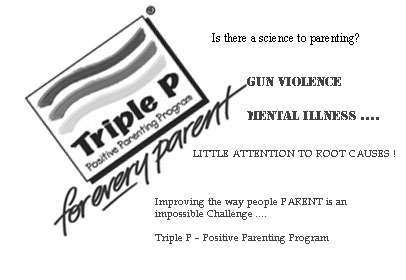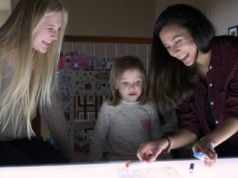Is there a science to parenting?
For all the current discussion in the
In 2010, children’s protective service agencies investigated 1.8 million referrals of child abuse and neglect pertaining to 3 million children. Although only 20 percent of these were substantiated, researchers report that physical abuse, including harsh physical discipline that is equivalent to abuse, is vastly underreported and may be 20 times more prevalent than is reflected in official statistics. (In other countries, including
It is now well accepted that physical discipline is not only less effective than other non-coercive methods, it is more harmful than has often been understood — and not just to children. A review of two decades worth of studies has shown that corporal punishment is associated with antisocial behavior and aggression in children, and later in life is linked to depression, unhappiness, anxiety, drug and alcohol use and psychological maladjustment. Beyond beating, parents can also hurt children by humiliating them, labeling them in harmful ways (“Why are you so stupid?”), or continually criticizing their behavior.
Improving the way people parent might seem an impossible challenge, given the competing views about what constitutes good parenting. Can we influence a behavior that is rooted in upbringing and culture, affected by stress, and occurs mainly in private? And even if we could reach large populations with evidence-based messages the way public health officials got people to quit smoking, wear seat belts or apply sunscreen, would it have an impact?
That’s what was explored in
The good news was that, in contrast to the control counties, over two years, the nine counties that received the Triple P Program had a 35 percent reduction in hospitalizations and emergency room visits for child injuries, a 44 percent reduction in out-of-home placements, and a 28 percent reduction in substantiated cases of abuse. The bad news was that the Triple P counties mainly held their ground, while abuse increased elsewhere in the state, possibly because of the recession and the concomitant budget cuts in children’s protective services.
The Triple P Program has evolved over the past 35 years. It focuses on families with children under age 12 and has shown efficacy in numerous studies. It started as a home visiting program, but researchers found it too expensive to deliver more widely, so they looked for ways to broaden its reach – to get good parenting into the water supply. “You know how vast
What’s notable about Triple P is that it pursues a community-wide, preventive approach. Sanders believes that all parents would benefit from some education — though some need a light touch while others need significant help. And why would it be otherwise? Unlike driving a truck or teaching, no one needs a permit to become a parent. We copy others and make it up as we go. Without a “reflective awareness” and the benefit of information, says Sanders, parents are apt to struggle with strategies that don’t work – or that work for some children, but not others. He has seen a great deal of conflict and unhappiness and violence-begetting rage and humiliation that could have been averted with manageable changes.
Triple P works at multiple levels, ranging from media and communication strategies (TV, Web, radio, newspapers) to brief individual consultations and group sessions to intensive parenting and family interventions for serious difficulties. “You need to get lots of practitioners from different sectors — education, day care, mental health, health, social services, pastoral counseling – who are trained to work with parents and families and give them an added skill,” explained Ron Prinz, the director of the Parenting and Family Research Center at the University of South Carolina, who led the Triple P study. “Parents need different ways to get exposed to it.” In the nine counties in
For parents, exposures can range from watching a video to participating in two 20-minute phone calls to attending 14 group sessions. “We follow the principle of ‘minimal sufficiency,’ ” says Sanders. “Use the smallest possible intervention to solve or prevent a problem.”
– Read More in David Bornstein’s Opinionator Blog








